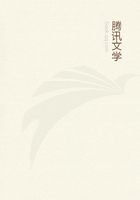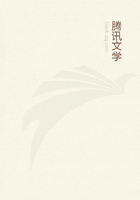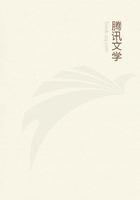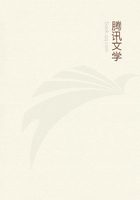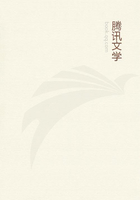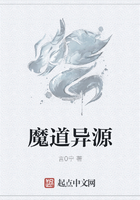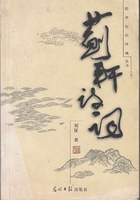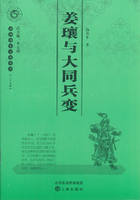But, beloved, if I have said that Israel could so properly sing, _what shall I say of those of us who are the Lord's spiritually redeemed?_ We have been emancipated from a slavery worse than that of Egypt: "with a high hand and with an outstretched arm," hath God delivered us. The blood of Jesus Christ, the Lamb of God's Passover, has been sprinkled on our hearts and consciences. By faith we keep the Passover, for we have been spared; we have been brought out of Egypt; and though our sins did once oppose us, they have all been drowned in the Red Sea of the atoning blood of Jesus: "the depths have covered them, there is not one of them left." If the Jew could sing a "great Hallel", our "Hallel" ought to be more glowing still; and if every house in "Judea's happy land" was full of music when the people ate the Paschal feast, much more reason have we for filling every heart with sacred harmony tonight, while we feast upon Jesus Christ, who was slain, and has redeemed us to God by His blood.
III. The time has now come for me to say how earnestly I desire you to "sing an hymn."
I do not mean to ask you to use your voices, but let your hearts be brimming with the essence of praise. Whenever we repair to the Lord's table, which represents to us the Passover, we ought not to come to it as to a funeral. Let us select solemn hymns, but not dirges. Let us sing softly, but none the less joyfully. These are no burial feasts; those are not funeral cakes which lie upon this table, and yonder fair white linen cloth is no winding-sheet.
"This is My body," said Jesus, but the body so represented was no corpse, we feed upon a living Christ. The blood set forth by yonder wine is the fresh life-blood of our immortal King. We view not our Lord's body as clay-cold flesh, pierced with wounds, but as glorified at the right hand of the Father. We hold a happy festival when we break bread on the first day of the week. We come not hither trembling like bondsmen, cringing on our knees as wretched serfs condemned to eat on their knees; we approach as freemen to our Lord's banquet, like His apostles, to recline at length or sit at ease; not merely to eat bread which may belong to the most sorrowful, but to drink wine which belongs to men whose souls are glad. Let us recognize the rightness, yea, the duty of cheerfulness at this commemorative supper; and, therefore, let us "sing an hymn."
Being satisfied on this point, perhaps you ask, "_What hymn shall we sing?_" Many sorts of hymns were sung in the olden time: look down the list, and you will scarcely find one which may not suit us now.
One of the earliest of earthly songs was _the war-song_. They sang of old a song to the conqueror, when he returned from the battle. "Saul has slain his thousands, and David his ten thousands." Women took their timbrels, and rejoiced in the dance when the hero returned from the war. Even thus of old did the people of God extol Him for His mighty acts, singing aloud with the high-sounding cymbals: "Sing unto the Lord, for He hath triumphed gloriously . . . The Lord is a man of war: the Lord is His name." My brethren, let us lift up a war-song to-night! Why not? "Who is this that cometh from Edom, with dyed garments from Bozrah? this that is glorious in His apparel, travelling in the greatness of His strength? I that speak in righteousness, mighty to save." Come, let us praise our Emmanuel, as we see the head of our foe in His right hand; as we behold Him leading captivity captive, ascending up on high, with trumpets' joyful sound, let us chant the paean; let us shout the war-song, "_Io Triumphe!_"
Behold, He comes, all glorious from the war: as we gather at this festive table, which reminds us both of His conflict and of His victory, let us salute Him with a psalm of gladsome triumph, which shall be but the prelude of the song we expect to sing when we get up--"Where all the singers meet."
Another early, form of song was _the pastoral_. When he shepherds sat down amongst the sheep, they tuned their pipes, and warbled forth soft and sweet airs in harmony with rustic quietude.
All around was calm and still; the sun was brightly shining, and the birds were making melody among the leafy branches. Shall I seem fanciful if I say, let us unite in a pastoral to-night?
Sitting round the table, why should we not sing, "The Lord is my Shepherd; I shall not want. He maketh me to lie down in green pastures: He leadeth me beside the still waters"? If there be a place beneath the stars where one might feel perfectly at rest and ease, surely it is at the table of the Lord. Here, then, let us sing to our great Shepherd a pastoral of delight. Let the bleating of sheep be in our ears as we remember the Good Shepherd who laid down His life for His flock.
You need not to be reminded that the ancients were very fond of _festive songs_. When they assembled at their great festivals, led by their chosen minstrels, they sang right joyously, with boisterous mirth. Let those who will speak to the praise of wine, my soul shall extol the precious blood of Jesus; let who will laud corn and oil, the rich produce of the harvest, my heart shall sing of the Bread which came down from heaven, whereof, if a man eateth, he shall never hunger. Speak ye of royal banquets, and minstrelsy fit for a monarch's ear? Ours is a nobler festival, and our song is sweeter far. Here is room at this table tonight for all earth's poesy and music, for the place deserves songs more lustrous with delight, more sparkling with gems of holy mirth, than any of which the ancients could conceive.
"Now for a tune of lofty praise To great Jehovah's equal Son!
Awake, my voice, in heavenly lays Tell the loud wonders He hath done!"
The _love-song_ we must not forget, for that is peculiarly the song of this evening. "Now will I sing unto my Well-beloved a song." His love to us is an immortal theme; and as our love, fanned by the breath of heaven, bursts into a vehement flame, we may sing, yea, and we will sing among the lilies, a song of loves.

